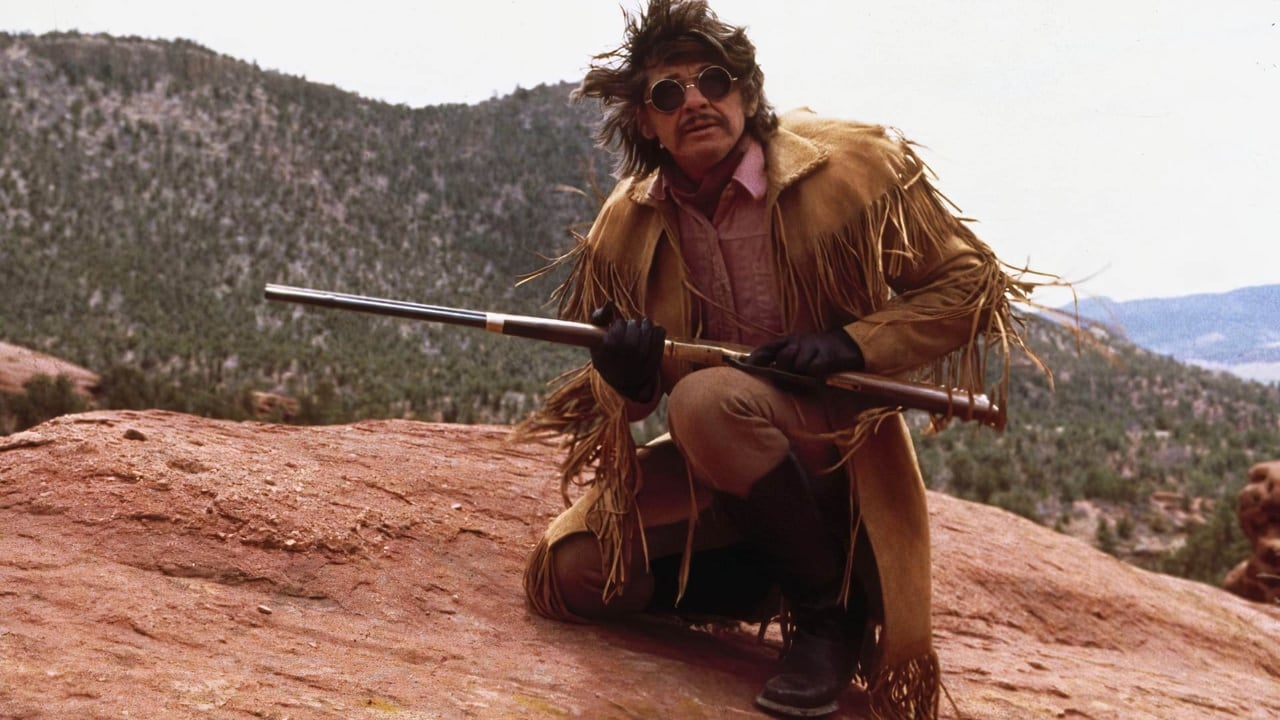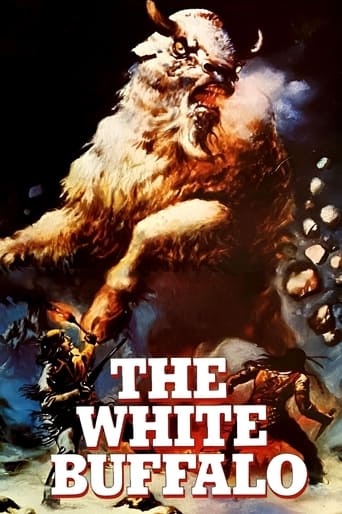

A story that's too fascinating to pass by...
... View MoreIf you like to be scared, if you like to laugh, and if you like to learn a thing or two at the movies, this absolutely cannot be missed.
... View MoreIt's the kind of movie you'll want to see a second time with someone who hasn't seen it yet, to remember what it was like to watch it for the first time.
... View MoreThe movie turns out to be a little better than the average. Starting from a romantic formula often seen in the cinema, it ends in the most predictable (and somewhat bland) way.
... View MoreI have seen almost all the films signed by J. Lee Thompson, a very good director, a lot of action films. He worked very often with Charles Bronson, a very dear actor, for him and for me. This is not one of the best, neither for Bronson or Thompson. It's decent enough but, the subject itself and how that buffalo look, it's more appropriate for teenagers. The best performances comes from Will Sampson and Jack Warden.
... View MoreThis is one movie, it pays to revisit OUT of the context of its time. I think we need to stop comparing it to Jaws or King Kong. I think the relationship between the leads is much more important, and I liked the character development devoid of many Bronson films. I liked the fact that creature special effects were "in the camera", animatronic rather than CGI. To be frank, CGI had NOT risen to the level of creature creations--stop motion, which was not used, was mainstay until the early '90's, even in Star Wars sequels five years later. And the mood music? The music is extraordinarily moody--this is a monaural track, yet it filled the military theater in Frankfurt Germany where I served back in '77 and paid my 50 cents to see it. Maybe the mood of the movie is too dark. Maybe it's too cold, it left me shivering. Maybe we're not supposed to think about characterization and WB makes you think about the relationships between the characters, and that's not what Bronson movies were supposed to be about. Maybe we don't like a little hard work.Give this one a chance. I think it is top notch.So hang up your prejudices and sit through it as if you never saw Bronson, or Will Sampson, or Jack Ward or Clint Walker in any previous role, because they're all outside the box in this one and they pull it off in my humble estimation.And that makes it one of my all time favorites.
... View MoreChief Crazy Horse will join forces with Wild Bill Hickok and his Indian-hating long-time pal, Charley One-Eye, in pursuit of a giant white buffalo that is danger to all mankind. While the buffalo looks like something made in a Hollywood Jim Henson work shop that might pop up in a Neverending Story movie, I think it was important for the filmmakers to establish that this is larger than life and perhaps not just some ordinary creature any hunter could kill. Hickok has seen the buffalo in many a terrifying dream, knowing that he must find it or else he'll never have peace. Crazy Horse is out for revenge, his daughter a victim of the white buffalo's rampage through his people's village, his tears of agony reducing his role in the tribe from War Chief to Worm; he must find the buffalo, kill it, and take the skins back to his village, placing the fur around his daughter's dead body, freeing her soul from never-ending torment. Charley One-Eye sees $2000 worth of gold in the flesh of the beast, standing faithfully by Hickok's side, but their relationship becomes strained when Hickok befriends Crazy Horse. There are some great supporting parts (Jack Warden as high-strung, but reliable, Charley One-Eye Zane steals the film, even though his disgust for "redskins" can be tough to take; it is understandable that such sentiments would exist in abundance considering the race relations at the time of this story in the 1800s) such as Kim Novak (looking fabulous, but so woefully underused) as Poker Jenny Schermerhorn, a possible love interest if Hickok's life weren't preoccupied (she wants a little playtime with Hickok but he exasperatingly speaks about how such sexual relations aren't possible due to an incident involving his "peeper"), Slim Pickens as a stagecoach driver with a peculiar vocabulary (if you notice, the screenplay is full of colorful, quirky dialogue, attempting to authenticate the period and how the men of this time might talk), a gleam-in-the-eyes John Carradine as an undertaker who always appreciates business brought his way (Slim delivers unfortunate folks who suffer fatefully at the hands of the dangers of the Old West), Stuart Whitman as a no-good knife man who works with a con woman played by Cara Williams often working over victims who happen to ride the same coach as them, Ed Lauter as cowardly cavalry sergeant, Tom Custer, with an ax to grind with Hickok over a saloon incident, and especially Clint Walker as Whistling Jack Kileen, a towering figure who holds a grudge until those who earn his ire are dead. Douglas Fowley is a hoot as a conductor scolding Hickok for shooting his guns out of a nightmare awakening passengers on board a train seeing him to his destiny, even opening Wild Bill's story with some narration. The white bison is presented as a mystical creature symbolizing death to Hickok, its rampage handled in a way not to show direct contact on screen past seconds, as if it sweeps through, does the damage, and leaves the carnage as a reminder that while most of its kind are now damn near extinct (an incredible scene showing hills of bison bones as a telling example of man's unhinged need to satisfy greed and rob the land of the animals that walk the earth), man will be punished for the inability to co-exist with the buffalo. Contains statements about the inhospitable, hostile relations between the white man and red man, as Hickok attempts to make amends for his behavior in the past by offering peace with Crazy Horse, while Charley represents a racist hatred that runs so deep he'd soon shoot any Indian that comes in his sights. Will Sampson as Crazy Horse has quite a powerful presence; hesitant to get too close to the white man (for obvious reasons), yet dignified and courageous enough to accept Hickok's offer of food and shelter before their big hunt would really start. Atypical western for Chuck Bronson; his performance conveys a tired man who has burned every bridge and has lost all his friends, not even able to exist in the same proximity with his new one, Crazy Horse. You see the horror of the white buffalo, the fear that exists (look at how director J Lee Thompson shoots Chuck's eyes); it is a performance of subtlety, but I'm sure many will just call it non-acting. The location shooting of the cold, wintry landscape in the West our characters inhabit can be flat breathtaking. A criminally underrated western that deserves a second look, especially from Bronson's faithful.
... View Morelove this movie one of my favorites. also the other guy that says you notice little things like with any movie that you did not notice before like for example when wild bill and one eye are in the bar one eye actually FARTS before he throws the mug. then the hot grease bum says make your move you glass eyed Gas bag. also i had question what the hell is a grease bum and what does he mean by hot Grease. not sure what else to say but i like the look and feel of the movie as well as the slang an all around classic that i will watch time and time again especially in the winter after i foreclose on his mortgage and hit the college you swag jab bellies. now the thunder bird is eating the sky. soon plenty of snow!!
... View More